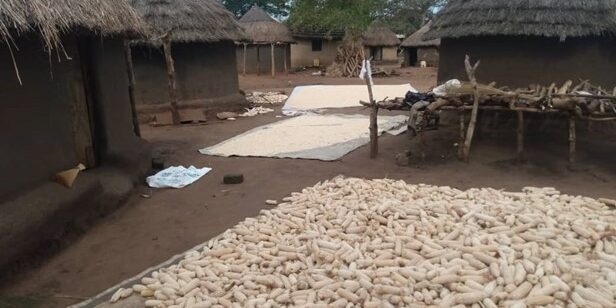
COVID-19 intensifies hunger among refugees
Author
Published: 09 June 2021
Last updated: 09 June 2021
Contact persons
Research areas
Share article:
Food security among refugees has deteriorated drastically during the COVID-19 pandemic. In the Adjumani district in northern Uganda, 90 percent of refugees receive too little food, a new study shows.
Refugees are often the most vulnerable to crises, no matter where in the world they are. The UN High Commissioner for Refugees (UNHCR) expects that the corona pandemic will weaken food security for refugees and internally displaced persons.
Cuts rations by 40 percent
Uganda is home to about 1.4 million refugees and is thus among the three countries in the world that receive the highest number. A new report from Ruralis shows how the pandemic has affected food security and nutrition for refugees and locals in the Adjumani district of northern Uganda. Measures to control the spread of COVID-19 have negatively affected food markets, sending food prices skyrocketing while disrupting supply lines, reducing support for the World Food Organization, and resulting in food ration cuts of up to 40 per cent.
– We see that food security for refugees and locals has worsened dramatically during the pandemic. When those who qualify for full rations now get 6 kg of corn, 2 kg of beans and 1 liter of cooking oil to manage for a whole month, one easily understands how nine out of ten refugees get far too little food, says senior researcher Anne Margrethe Brigham at Ruralis.
Access, availability and agency
Together with Ruralis colleague Sarah Khasalamwa-Mwandha, as well as Paul Isolo Mukwaya and Geofrey Gabiri from Makerere and Kyambogo universities in Kampala, respectively, she released the report The Corona Pandemic’s Impact on the Food and Nutrition Security of Refugees in Northern Uganda. Researchers have shed light on different dimensions of food security before and during the pandemic – access to food, availability of food, nutrition and agency – and have analyzed the changes brought about by the crisis.
The results are based on a survey among 639 households in refugee camps and nearby communities. In addition, 15 people with key roles in the refugee community were interviewed. Due to the pandemic, the field work had to be carried out with the help of local research assistants.
79 million displaced
Worldwide there are now more than 79 million refugees and internally displaced persons, around 80 per cent of which live in countries affected by hunger and malnutrition. In Africa, Uganda is the country that receives the most refugees. The UN High Commissioner for Refugees (UNHCR) expects that the COVID-19 pandemic will worsen food security for refugees and internally displaced persons.
“No matter where they are in the world, refugees are often the ones who are most vulnerable to crises,” Brigham said. She points to three main reasons why food security has become so much worse for the refugees in Adjumani.
- Funding for the World Food Organization has been cut because of the pandemic.
- The pandemic has made it much more difficult for most of the refugees and locals to earn an income and to sell and/or buy food in the markets.
- Most refugees do not have access to arable land except for a small kitchen garden which is insufficient to compensate for cuts in food rations. Some of the refugees who had access to arable land before the pandemic have lost this access.
Urgent need for money
– The findings show that there is an urgent need for increased funding for the World Food Organization in Adjumani, and that it is important to develop more robust food systems for refugees so that they can be better equipped for future crises. This applies whether they come in the form of pandemics, economic downturns, or extreme weather, says Brigham.
When she says “more robust” she means that food systems must be able to maintain production, supply, and distribution during crises. Or that they can be adapted to new framework conditions because of sustained changes, such as global warming.
Author
Published: 09 June 2021
Last updated: 09 June 2021


